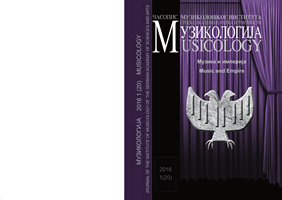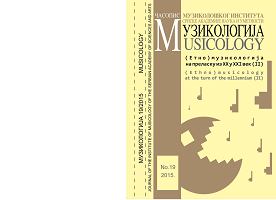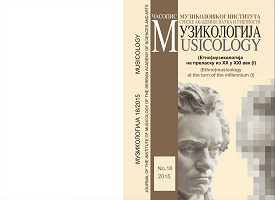Author(s): Sanja V. Radinović / Language(s): Serbian
Issue: 20/2016
Miodrag A. Vasiljević (1903-1963) was given a unique opportunity to span two great developmental stages in the history of Serbian ethnomusicology, occurring in the middle of the 20th century. The first of them was between the two World Wars, the stage in which Serbian musical folklore became Vasiljević’s life passion and in which he accomplished his early professional achievements. In the next stage, which started after World War II, he reached the zenith of his creation in slightly less than twenty years, setting new standards of the discipline, and providing fundamental directions for his successors, thereby immeasurably enlarging the corpus of collected material. Due all of these revolutionary innovations from the post-war period, Vasiljević is rightly considered to be not only the founder of modern Serbian ethnomusicology, but also the first person in Serbia worthy of being called an ethnomusicologist in the full sense of the word. Of the numerous results by which Vasiljević permanently indebted his people, the most pronounced does not belong to the category of pioneering endeavours, but is manifested in his melographic opus – an achievement which even today has not been surpassed in Serbia in terms of its span, scope and value. Such great productivity in recording resulted from the fact that Vasiljević had been devoted to melography from his childhood, and most intensely from 1932 to the end of his life. The exact number of examples which Vasiljević transcribed directly in the field before 1951 and those which he recorded on a tape-recorder after that time is still unknown, since many of them are still unavailable to the public, but it can be assumed that there are several thousand melodies in total. Among them are 3,198 which have already been published. That precious corpus of Vasiljević’s available material is contained in twelve collections (the largest number ever regarding any collector in Serbia so far), issued from 1950 to 2009. The first four collections offer comprehensive material from Kosmet, Sandžak, Macedonia and the region of Leskovac, and they were edited by Vasiljević himself during the last ten years of his life or so. Posthumous publications were devoted to Montenegro, Vojvodina, Resava and various parts of central Serbia, as well as to the repertoires of the famous singer Hamdija Šahinpašić (1914/16-2003) from Sandžak, and gypsy female singer Malika Jeminović Koštana (1872?–1945) from the vicinity of Vranje. Until now there have still not been any comprehensive studies on Vasiljević’s ethnomusicological activity, although there are valuable articles. In these, Vasiljević’s melographic contribution is usually emphasised much more than his scientific one, which is much more modest in its scope. Since the existing writings mostly deal with collections published during his life, this paper results from the intention to give a complete picture of the material, so all Vasiljević’s collections were critically considered according to the chronology of their publication. Each of the publications emerged to witness to both Vasiljević as a field worker and to some of the important stages of his own ethnomusicological development.
More...



